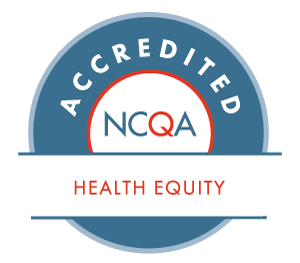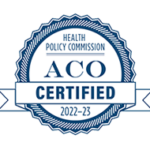AUTHOR
Annie Pham
Despite recent buzz about the social drivers of health (SDoH) in the health care industry, addressing health-related social needs is a concept that federally qualified health centers (FQHCs), or otherwise known as community health centers, have long understood. Community health centers recognize that social needs—such as food access, stable housing, transportation, and employment—play a larger role in health than medical care alone. How effective can a clinical intervention be if a patient’s basic needs are not met? Take for instance diabetes, a disease that affects 1 in every 10 Americans: the ability to access food and knowledge of healthy eating and diet is paramount to managing their condition. In the same vein, it is exceptionally difficult for anyperson to focus on their health if they have unstable housing and do not know where they are going to sleep at night.
Community health centers understand this matter—that “the conditions in which people are born, grow, live, work and age” (WHO, 2022) matter to their health and well-being—and they experience it acutely because of they often serve disproportionately under-resourced patient populations. For this reason, our health centers have created deep rooted connections with organizations in their community to connect patients to vital resources, including food pantries, legal services, and job training. Many of these programs, however, are funded by grants and philanthropy and most times, the need is much larger than the pool of resources available.
In 2017, when the Executive Office of Health and Human Services in Massachusetts announced a pilot opportunity for accountable care organizations serving Medicaid members in the state to design and implement programs to address health related social needs, there was no question as to whether we would participate, but instead, we immediately got to work to try to answer the question of how we would pull this off.
As we reflect on the lessons we’ve learned in the 3 years of designing and implementing our Flexible Services nutrition and housing programs, strategic investment in community partnerships jumps out as a critical throughline to building and sustaining our programs. At C3, we are expanding the capacity of trusted community organizations who have been doing this work for decades rather than building our own infrastructure to provide services directly to members. And it is important to us to not simply refer our members to the charitable sector for support but to invest funds in ways that allow our partners to build upon their deep community roots while addressing social needs.
We built a portfolio of partnerships with over 20 social service organizations across the state of Massachusetts and created teams of Nutrition and Housing experts to address the food security and housing stability needs of our members. In the first 3 years of the program, we served 10,000 members, connecting each person with a navigator. These navigators meet individually with our members to understand and customize the services to the member’s unique situation. In our nutrition programs, members experiencing food insecurity receive supports such as grocery vouchers for food purchasing power, kitchen supplies to cook and prepare healthy foods, and nutrition education to learn the skills necessary to achieve good nutrition. In the housing program, we meet members where they are and provide intensive case management and coaching to help members maintain or secure housing.
Of the 10,000 members that have been referred, 92% of members are successfully connected to one or more of our partner organizations for nutrition and/or housing assistance. The literature on health care and social service interventions aimed at addressing health related social needs often cites a connection rate between 10-15%. So, what’s the secret sauce you might ask? For common challenges like initiating partnerships, defining program goals, closing referral loops, and putting contracts and technology systems into place, we have realized that strong relationships with your partners and a process guided by co-design are fundamental to success. The secret sauce really is just as simple as that – investment into developing strong partnerships built on trust, transparency, accountability, and collaboration. If you want to learn more about our programs and approach, read our report on the Flexible Services Program here.





